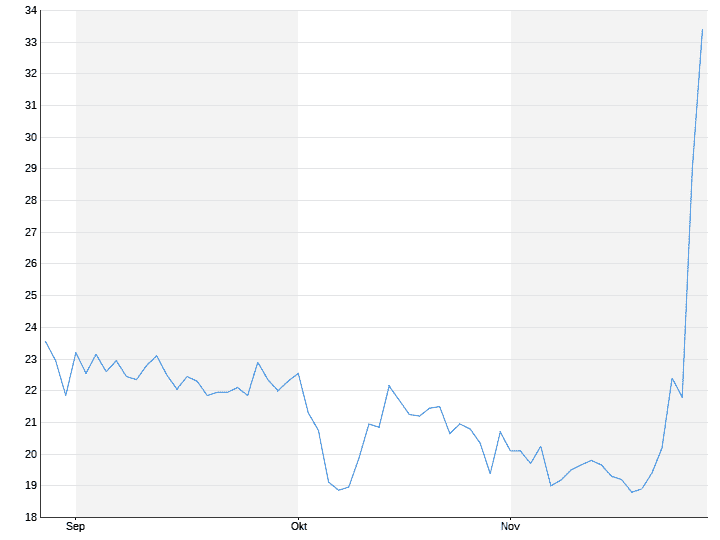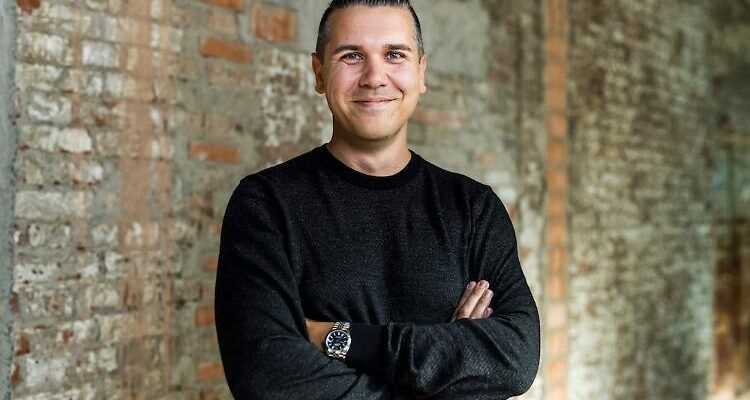Saturday, November 27th, 2021
Manufacturers are warming up
“We need a cannabis purity law”
With the traffic light plans, Germany is not only facing a historic step in drug policy. Liberalization also opens up a legal mass market. The industry is hoping for big profits. In an interview with ntv.de, Lars Müller from SynBiotic tells what the cannabis industry is now facing.
ntv.de: The traffic light paved the way for legal weed smoking in its coalition agreement. Did you expect it to happen so quickly?
Lars Müller: It came as a total surprise to us. We have been active in the cannabinoid market with SynBiotic SE for a few years. In our cooperation with lobby associations, we have worked for a long time to bring the topic forward. We didn’t expect legalization to come so quickly.
What do you say to critics who think legalizing cannabis is dangerous?
Many critics argue: cannabis is a gateway drug. I would be happy to reply that we should also give some thought to alcohol. I consider this argument to be completely blinded. There is already a black market one way or another. Anyone who wants cannabis today will get it. In the future, he’ll get it from a place that ensures that the quality is right. Nobody has to buy their cannabis from bizarre dealers anymore.
In Germany, cannabis has been allowed for medical purposes since 2017. What is in store for the German cannabis industry now?
The German cannabis industry will be divided into two areas in the future. One is the very clear medical application, which, as it is today, is implemented through doctors and pharmacies. For this purpose, there will be special flowers and products such as extracts and, for example, dronabinol, which have a medicinal quality. In addition, a leisure and leisure market will now be created. The following still needs to be clarified: What quality standard must the THC-containing products comply with? We need a “cannabis purity law”, so to speak. I see these areas parallel to each other. The target groups are totally different. That’s why I can’t imagine that cannabis for the consumer and leisure market will be available in pharmacies.
Companies that focus on non-psychoactive substances like CBD have shot up like mushrooms before the traffic lights hit the ground running. Will CBD and THC products compete against each other in the future?
CBD stands for cannabidiol. This is one of more than 100 active ingredients that can be found in the cannabis plant. Unlike THC, the best-known cannabinoid, CBD has no intoxicating effects and is therefore not subject to the Narcotics Act. It still works, just different. Research says it helps you focus, for example, and sleep better with it. Inflammation can also be avoided, muscles seem to relax better after exercise.
Like ibuprofen and paracetamol, CBD and THC are two completely different active ingredients. I am critical of the medicinal use of THC. The psychoactive component of THC, the high I get, often doesn’t make sense for medicinal use. Pain sufferers cannot consume THC in the morning and then drive to work afterwards. This is why CBD has its advantages as a non-psychoactive cannabinoid. There will be a synergetic interaction between CBD and THC. Legalization will certainly give THC a real boost again. After all, there is already a multi-billion dollar black market. In comparison, the CBD market is smaller. I suspect THC will get a very clear head start in the next few years.
Do the few companies that are already allowed to grow cannabis in Germany have a competitive advantage?
I do not think so. In Germany, the few companies grow their flowers in factories similar to bank vaults. At the scaling level, it is absolutely impossible for this to work. But I also don’t see that the farmer around the corner is allowed to grow cannabis for sale in the Allgäu. The cards will now be reshuffled. I believe that companies that are already strong in imports can hope for good business and, above all, companies that already have the right varieties in their portfolio. The recreational stoner does not want to smoke medical cannabis, but special varieties. In order to be able to offer these to consumers, we are dependent on imports because we cannot grow them that quickly in Germany.
In the Netherlands, the liberal handling of cannabis has shown: Illegal cultivation and trade, importation and distribution have been strengthened and criminal gangs are waging violent conflicts over market shares. Are we facing a similar scenario in Germany?
In our neighboring country, cannabis has not been legalized – it has only been decriminalized and tolerated. That is not optimal. Selling is only allowed in coffee shops and the supply chains are also quite opaque. The Netherlands are not a role model. When Germany officially legalizes cannabis, names official dispensing points, and clearly regulates how it can be grown and distributed, then that is a big leap in professionalization.
What does legalization mean for your company?
With SynBiotic SE, we are the largest group of companies in Europe for the whole topic of cannabinoids. We have eight companies in our group and it is rumored that there will be a few more in the future. We are already well positioned for CBD and THC. We have a functioning sales department and licenses. Our business model is not dependent on legalization, but of course this move will have a massive positive economic effect on our numbers.
So far, cannabis stocks haven’t been for conservative investors. Could that change anytime soon?

That always depends on the company in question. There will also be very aggressive and speculative companies in the future that say: In three years we will make billions in sales and millions in profits. SynBiotic SE stands for a certain down-to-earth attitude. We pursue a buy-and-build strategy, which means that new companies are added to our group of companies every year. We are already profitable in some parts of our group. Not yet in the group as a whole, because we are also pursuing growth projects. With SynBiotic SE, I want to build a group of companies that will be in the black soon and that will be able to survive on the market without a constant influx of external capital. In Canada and North America we learned how not to do it. We want to avoid these mistakes here.
Which are they?
Far too big promises were made in North America and they were not kept. Of course, the investors also punish this. We know that and that is why we remain as transparent and reliable as possible. In addition, far too many cannabis cultivation projects have sprung up in the USA and Canada far too quickly. The focus on that was way too strong. In Germany and Europe we now have the chance to do better.
Juliane Kipper spoke to Lars Müller
